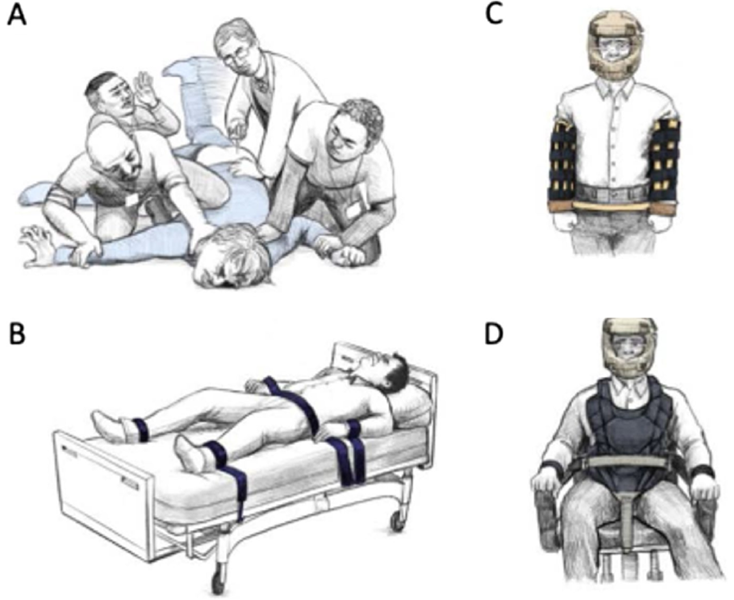A nurse is assessing a client during a follow-up at a health clinic. The client reports that they struggle to take antipsychotic medication on a regular basis. Which of the following actions should the nurse take to improve medication adherence?
Tell the client they will be admitted to an inpatient care facility if they do not take the medication.
Discuss the provider's goals for the client's care.
Ask the client if the medication is causing adverse effects.
Request the provider prescribe a second antipsychotic medication to the client.
The Correct Answer is C
Choice A reason:
Telling the client that they will be admitted to an inpatient care facility if they do not take their medication can be perceived as a threat and may damage the therapeutic relationship. It is not an effective strategy for improving medication adherence, as it does not address the underlying reasons for the client's struggle with taking the medication.
Choice B reason:
Discussing the provider's goals for the client's care is important, but it does not directly address the issue of medication adherence. While understanding the treatment plan can be beneficial, it is more crucial to engage the client in a conversation about their experiences and concerns with the medication.
Choice C reason:
Asking the client if the medication is causing adverse effects is a direct approach to understanding potential barriers to medication adherence. Adverse effects can be a significant reason why clients may be reluctant to take their medication regularly. Addressing these concerns can lead to adjustments in the medication regimen that may improve adherence.
Choice D reason:
Requesting the provider to prescribe a second antipsychotic medication is not an appropriate first step without first understanding the reasons for non-adherence. Adding another medication could complicate the regimen and potentially lead to more adverse effects or interactions.
Nursing Test Bank
Naxlex Comprehensive Predictor Exams
Related Questions
Correct Answer is B
Explanation
Choice A reason:
An apology from the client for their prior behavior, while it may be a positive step towards recovery, does not necessarily indicate that they have regained control over their actions or that they no longer pose a risk to themselves or others. The decision to discontinue restraints should be based on current behavior and risk assessment rather than past actions.
Choice B reason:
The primary goal of using physical restraints is to prevent harm to the patient or others when less restrictive interventions are not effective. If the client demonstrates control over their actions, it suggests that they are no longer at immediate risk of harm, and therefore, discontinuing restraints could be considered³⁴⁵. This aligns with guidelines that advocate for restraint use to be continually assessed and reduced or discontinued as soon as possible.
Choice C reason:
While a request to be released from restraints indicates a desire for freedom, it does not provide enough information about the client's current mental state or risk of harm. The healthcare team must assess whether the client's condition has improved to a point where restraints are no longer necessary.
Choice D reason:
Signing a behavioral contract is a positive step towards establishing trust and setting expectations for behavior. However, it is not an immediate indication that the client can safely have restraints removed. The effectiveness of such contracts depends on the individual's ability to understand and adhere to the agreed-upon behaviors.

Correct Answer is ["B","C","E"]
Explanation
Choice A reason:
Placing the client in a reclining chair is not a recommended intervention for managing wandering behavior. While it might seem like a way to keep the client stationary, it does not address the underlying issue of wandering and can lead to discomfort or pressure sores if the client remains in the chair for extended periods.
Choice B reason:
Installing sensor devices on outside doors is an effective intervention. These devices can alert caregivers when the client attempts to leave the house, thereby preventing wandering and potential falls. This measure enhances safety by providing immediate notification of the client's movements.
Choice C reason:
Positioning the mattress on the floor can help prevent injuries from falls. If the client rolls out of bed, the risk of injury is minimized because the fall distance is significantly reduced. This is a practical solution for clients who are prone to falling out of bed.
Choice D reason:
Encouraging physical activity prior to bedtime can be beneficial for overall health but may not be the best strategy for managing nighttime wandering. Physical activity should be balanced and not too close to bedtime, as it can sometimes lead to increased alertness rather than promoting sleep.
Choice E reason:
Putting locks at the top of doors is a useful safety measure. Clients with Alzheimer's disease may not notice or be able to reach locks placed higher up, which can prevent them from wandering outside unsupervised. This intervention helps ensure the client's safety by restricting access to potentially dangerous areas.
Whether you are a student looking to ace your exams or a practicing nurse seeking to enhance your expertise , our nursing education contents will empower you with the confidence and competence to make a difference in the lives of patients and become a respected leader in the healthcare field.
Visit Naxlex, invest in your future and unlock endless possibilities with our unparalleled nursing education contents today
Report Wrong Answer on the Current Question
Do you disagree with the answer? If yes, what is your expected answer? Explain.
Kindly be descriptive with the issue you are facing.
